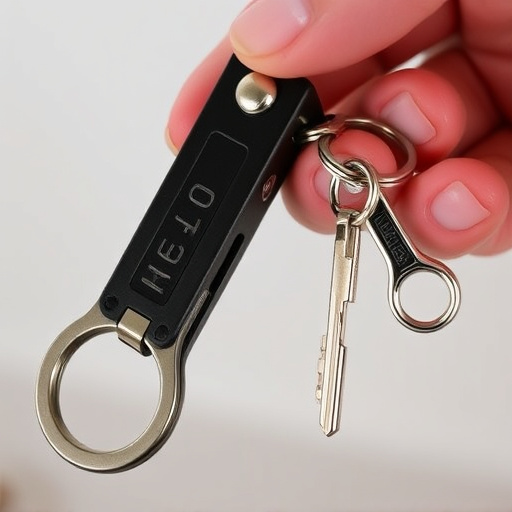Choosing unbreakable self-defense keychains prioritizes material quality: opt for durable metals like stainless steel or titanium to ensure strength and corrosion resistance. Ergonomic designs enhance grip security. Sharp edges or tools add versatility but necessitate safe storage. Prioritize legal carrying options and proper handling.
Unbreakable self-defense keychains are a smart investment for personal safety. With the right design, these compact tools can provide a secure grip and effective defense in various situations. In this article, we’ll explore how to create a robust keychain grip using sturdy metal materials. We’ll delve into essential design considerations that enhance grip and durability, ensuring your self-defense keychain stands the test of time. From choosing the best metals to top picks for functionality, discover tips to craft an unbreakable defense companion.
- Unbreakable Materials: Choosing Sturdy Keychain Metals
- Design Considerations for Enhanced Grip
- Top Picks for Self-Defense Keychains
Unbreakable Materials: Choosing Sturdy Keychain Metals
When designing or selecting an unbreakable self-defense keychain, material choice is paramount. Opt for metals known for their exceptional durability and strength to ensure the keychain can withstand regular use and potentially life-saving situations. Common options include high-quality stainless steel, titanium, and aircraft-grade aluminum—all renowned for their resilience against bends, breaks, and corrosion.
These robust materials not only provide peace of mind but also offer a reliable edge in emergency scenarios. For instance, a sturdy metal keychain can serve as a potent self-defense tool by delivering powerful strikes or providing leverage when needed. Choosing the right metal ensures that your defense keychain is as effective as it is compact and portable.
Design Considerations for Enhanced Grip
When designing an unbreakable self-defense keychain, grip is paramount. Consider materials that offer exceptional durability and a secure, comfortable hold. High-quality metal alloys, such as stainless steel or titanium, are excellent choices due to their strength and resistance to wear and tear. These materials provide a solid foundation for effective gripping, ensuring your keychain can withstand rigorous use without compromising integrity.
Incorporate ergonomic features like textured surfaces or contoured designs that mimic the shape of your hand. This enhances grip security, especially in challenging conditions, making it ideal for self-defense scenarios where quick and firm control is essential. Additionally, focusing on these design considerations ensures your keychain’s versatility, allowing users to attach it securely to keys, bags, or even as a last-resort defense tool in various situations.
Top Picks for Self-Defense Keychains
When it comes to self-defense keychains, choosing the right material is paramount for both effectiveness and reliability. Opting for unbreakable materials ensures your keychain can withstand intense pressure and impact during an emergency. Stainless steel and titanium are top picks due to their exceptional durability. These metals aren’t easily damaged or bent, making them ideal for self-defense tools. Additionally, they offer excellent rust resistance, ensuring your keychain remains functional in various environments.
Furthermore, consider keychains with sharp edges or built-in tools like glass breakers or screwdrivers. These features enhance versatility and utility. However, always prioritize safety when carrying such devices, ensuring they are legally permitted and stored responsibly to prevent accidental injury.
When selecting a self-defense keychain, prioritizing unbreakable materials like stainless steel or titanium is crucial. Incorporating ergonomic design considerations ensures a firm grip, enhancing your safety in unexpected situations. Among top picks, keychains with built-in flashlights or sharp edges offer added protection. Remember, the best defense is preparation, and the right keychain can make all the difference.
